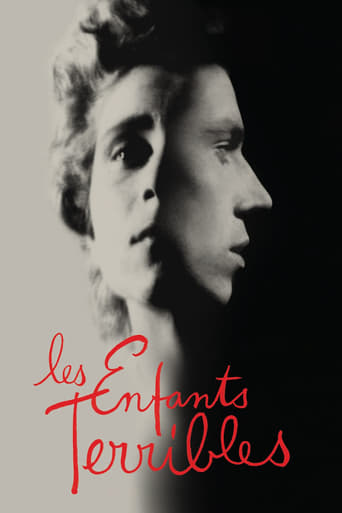R. Ignacio Litardo
It took time to build, but when things got really rolling, I felt things could not happen otherwise. The settings and actresses are truly fine. The musical score, simple and obsessive, is perfect for this almost naive plot of youth angst "avant la lettre". The final monologue of Elizabeth about "how we have to make our lives ugly, unlivable" is worth many bad French Literature we "ought to read".While I cannot say it has any meaning, the "form" of this movie is so good one just forgets. I agree with Amazon's Tom Keogh that it may be "a harbinger of pop narcissism", I thought exactly the same. Some images are beautiful, like Liz moving in the garden with barren trees and a cloudy sky, prodding elegantly in a house that doesn't belong to her. Doug Anderson on Amazon wrote a good summary and a great line: "the unwholesomeness of the bond is immediately apparent" "little blonde fascist versions of Elizabeth Taylor and Richard Burton-". The thread he and another reviewer have is interesting. I pinch from there my end line: "In film the "how" is everything".
PathetiCinema
This movie inspired the 1990's movie classic Problem Child 2. However, the production of this earlier clone is far weaker. The cinematography is not a patch on Problem Child 2. The performances are variable. Some average, some awful. The problem with this movie is that it wants to be an outright comedy but refuses to admit it. At times you can sense that the director was longing to put a banana skin in the path of its main character. The scene with the terrible child. That could have been far superior if the child had thrown a bucket of custard over the adult and ran off. There are too many scenes in which the main characters do not do anything remotely hilarious. Missed opportunities are the achilles heel of this movie.
danielhsf
I saw this twice in a single day. And couldn't stop watching this after. Each time I start watching a Hollywood movie I can't help but surrender back to this surrealist nutjob where nothing is really definable.Much of the literature I've read on this focus on the unlikely collaboration between Jean Cocteau and Jean-Pierre Melville, with most putting it in context of Cocteau's other films. But I've always thought that Cocteau's Orphée, made during the same period, feels static and leaden amidst the classical style of its 50's direction. Les Enfants Terribles, while retaining a very classical premise, is completely revolutionary, resembling the unruly romanticism of Rimbaud's poetry. Nothing in the film stays the same - everything is constantly shifting; dyamics are constantly changing; even the sets change in subtle ways. Everything is made purposefully ambiguous and ambivalent such that paradoxes and contradictions abound in a single emotion. But ultimately, as all great Melvillian films are, the film is about the futility of humanity in the face of life and death.I could go on and on about this movie; Melville is truly one of the great poets of cinema.
Bob Taylor
This is a great film; I've seen it a couple of times on TV recently. Nicole Stephane is astonishing, her face a mask of passion, deviousness, grief. She had the glam-butch look that only Sharon Stone today has mastered. Edouard Dermithe wasn't much of an actor--Cocteau "rescued" him from the coal-mines of the north of France--but he's as spoiled as the story needs. Renee Cosima is fabulous as Dargelos/Agathe; I love her fish-mouth and hoarse voice, and those plump arms. A MUST.


